JuliaHub 6.0 Features Released
JuliaHub abstracts away the complexity of setting up an environment for high performance computing with packages and features that help with modeling, geospatial measurements, fluid dynamics and simulation. It’s used in fundamental data science research and currently used by industries as far reaching as semiconductors, aerospace, fluid dynamics, finance, government, and energy. JuliaHub’s newest features focus on automating infrastructure and configuration settings to improve scale and speed. Our goal continues to be to build tools that help orchestrate, deploy, and report the business value of data science and models. JuliaHub’s future will include safety, reliability, compliance, and simplicity. Our aim is to continue to build a platform that allows non-technical users access to high performance tools while allowing experts to derive extreme value at scale.
With version 6.0, JuliaHub has just launched a series of features that will help users get the full benefit out of the platform even faster. The following features have recently been made available on JuliaHub.com.
Hot Standbys Launch Apps Faster
Two of the most valuable characteristics of the Julia programming language are the low barrier to entry to learn Julia (it’s an easy language to learn) and speed the language provides. The ability to get the results of large datasets and execute using mathematical equations in the code itself helps make programming in Julia much faster than in older scientific computing languages. This provides tremendous value to industries that need to run simulations with terabytes of code.
Keeping that speed of execution in mind, we’ve made some tremendous improvements to how quickly products and applications on JuliaHub start up. Usually, new users launching the Julia IDE or the Pluto Notebook application will hit a Launch button which initiates an instance of that application, but up until now, it still took a few minutes for that instance to actually connect. This is because the back-end infrastructure was being provisioned only when the launch button was selected. To speed up this issue, we’ve added a feature that includes hot standbys that are always ready to connect. This dramatically speeds up launching and starting applications.
File Browser
Another feature focused on usability and speed is the recent addition of the file browser in JuliaHub’s UI. With JuliaHub, each user gets persistent storage on the cloud, available to use with every interactive (Pluto, Julia IDE) and non-interactive (batch job). The old way of accessing files in your home directory required users to launch an instance of the Julia IDE so they could navigate around the code folder and see files and datasets in Visual Studio Code. The new file browser will give users instant access to their files right away the second they login to JuliaHub. In the future, we plan on adding even more features to this file browser including better sharing and collaboration capabilities.
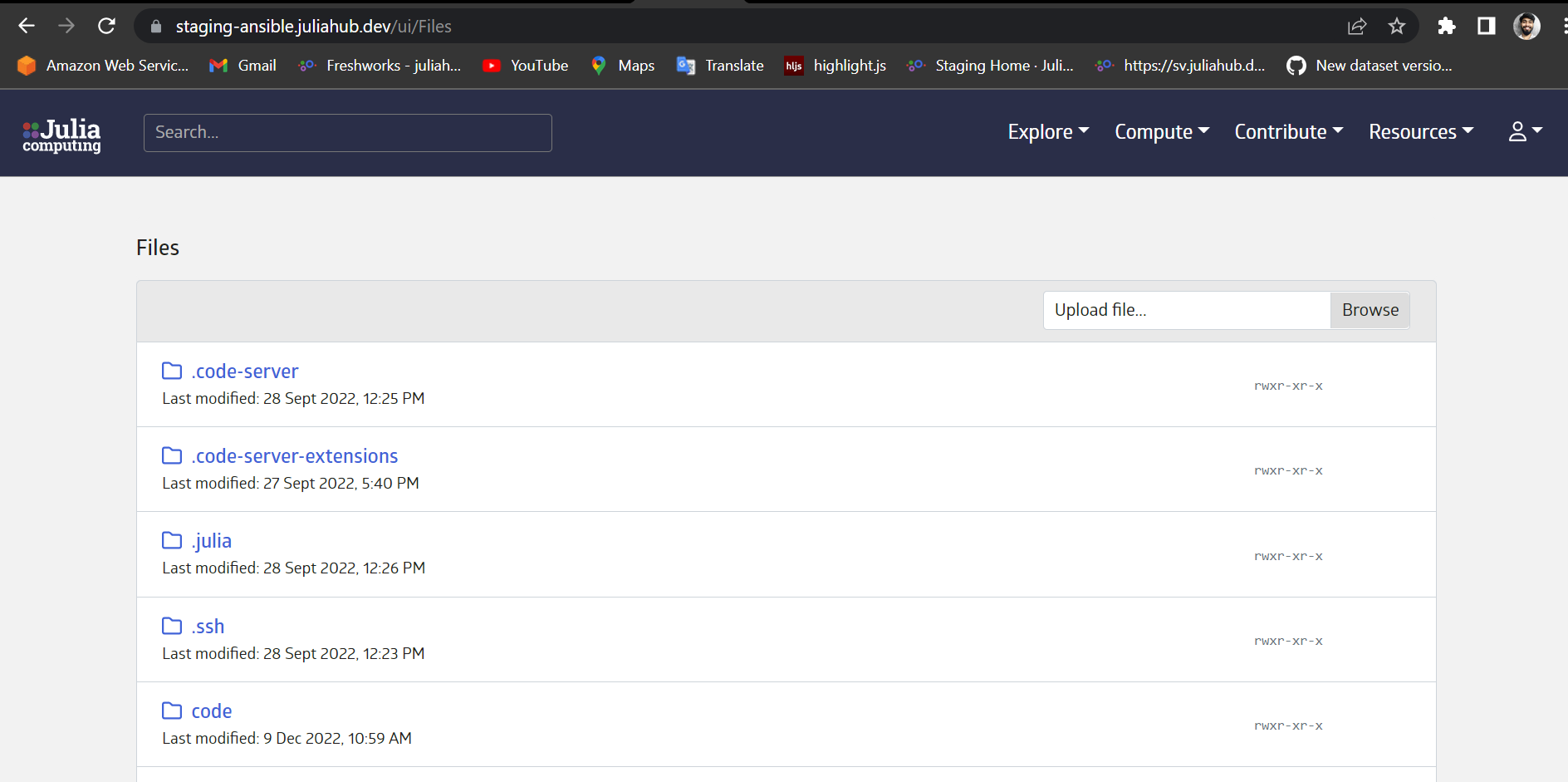
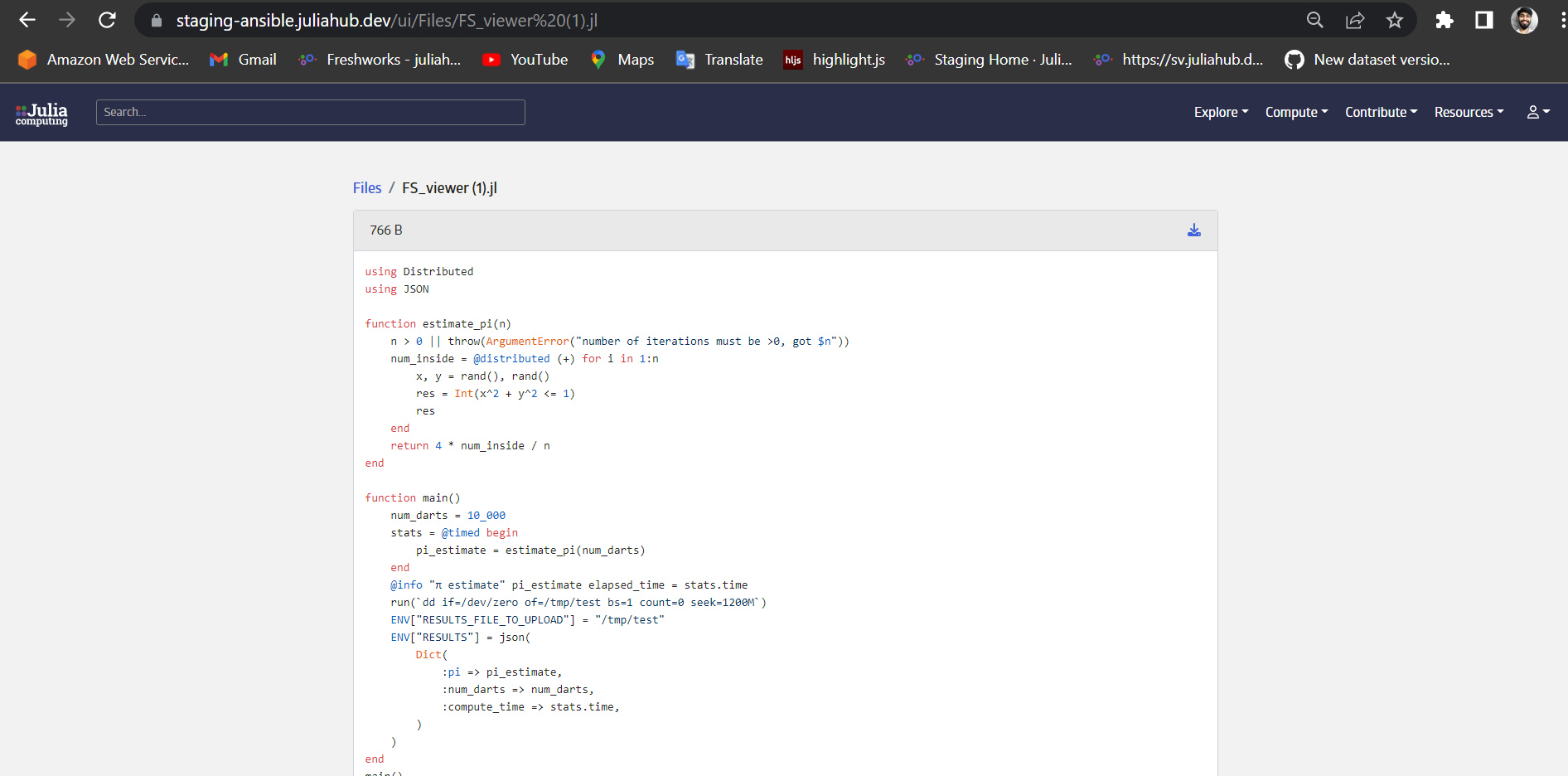
Datasets
So far, the primary way to manage your datasets on JuliaHub has been via the JuliaHub VS Code extension. For extra convenience and flexibility, JuliaHub 6.0 adds new ways of interacting with datasets in the web UI.
In particular, it is now possible to not just upload new datasets via the website, but also to update existing ones, by allowing uploads of new versions of data sets. In the same vein, it is also now possible to download datasets via the web UI.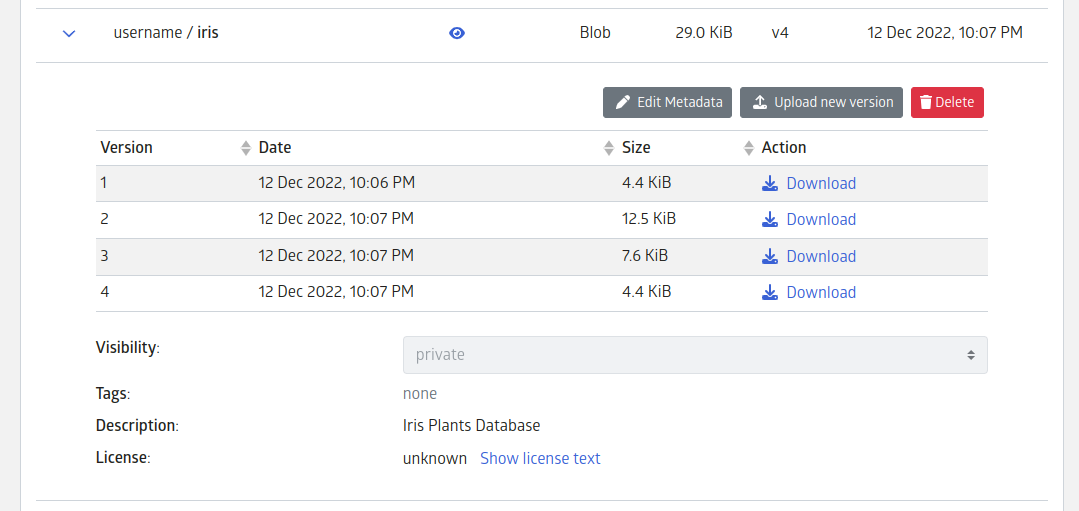
Another major improvement for working with datasets is the ability to view and explore tabular data sets in the web interface. By clicking on the new “View” icon of a data set.

JuliaHub will attempt to parse the data set and display the contents as a table. For basic data exploration, the data set can also be sorted by the various columns.
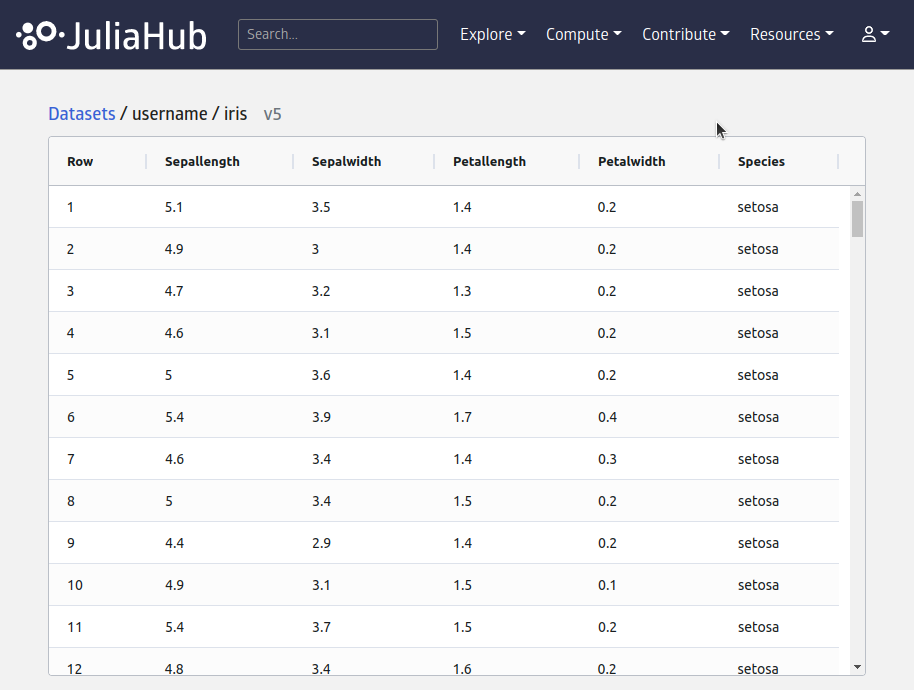
Currently, in terms of file formats, the feature only supports CSV files, but support for additional formats to be added in the near future.
Projects (for the Enterprise)
One of the big needs that our non-technical teams have told us is the ability to edit code in the Julia IDE and have those code changes stay synced across individual team members. This ability to version control your files is one that developers are familiar with, but other programmers - perhaps those in academia or the pharmaceutical sciences - may not use on a daily basis. We’ve recently worked towards solving this problem by an initial feature we call “Projects” that helps bring all your files under one roof and uses git-based version control to track changes made.
This feature essentially pulls in a repository from GitHub, GitLab, or BitBucket and syncs code changes in the Julia IDE with the repo no matter which team member and which version is being updated. It’s a UI that non-technical users will understand much more easily to sync their file changes and persist those changes no matter what product or application they are using in JuliaHub.
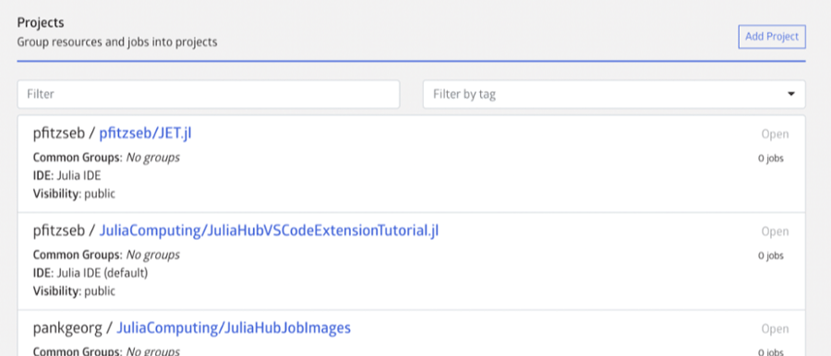
Pluto Updates
Pluto on JuliaHub just got better! Starting with 6.0, we are now continuously keeping a fresh export of your JuliaHub notebooks any time you run a notebook on JuliaHub. The static export will be saved when the notebook is done evaluating all its cells. Furthermore, if you place the notebook in a “public” folder, you can share the static notebook link with anyone!
The static export can also turn into a live session with the click of a button - you get connected to a CloudStation instance with Pluto and you continue working seamlessly!
JuliaHub.com is the place to go to try out these new features. You can request access to a free account or contact sales to get started with more advanced products.
To learn more about these features or to submit product feedback, you can email: deep.datta@juliahub.com.
About the Author
Deep Datta
Access expert content by Deep Datta on JuliaHub. Uncover advanced topics in modeling, AI, and computational science.


